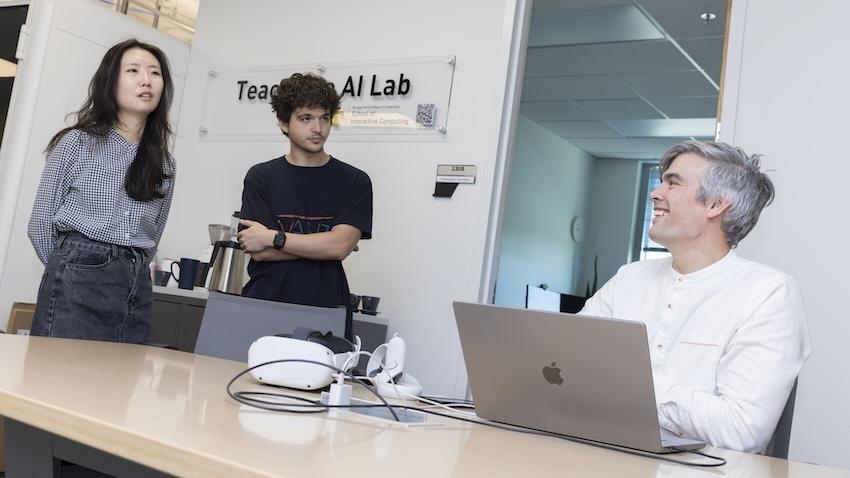
Human-AI Collaboration Takes Center Stage in New Competition
In a world rapidly embracing artificial intelligence, researchers are turning their attention to a critical question: How can AI agents become not just tools, but true teammates? Christopher MacLellan, assistant professor in the School of Interactive Computing and faculty member of the Institute for People and Technology, and his team are tackling this challenge head-on through a groundbreaking initiative that blends research, competition, and collaboration.
At the heart of their work is a unique human-AI teaming tournament competition — believed to be the first of its kind — designed to explore how people and AI agents can work together effectively. Unlike traditional AI competitions that pit agents against one another, this event emphasizes cooperation. Participants design AI agents that can collaborate with humans or other agents to achieve shared goals in a team tournament setting.
“We’re interested in using cooperative games as a tool to understand how people and agents can team together more effectively,” MacLellan explains. “This competition is a step toward designing AI that doesn’t just follow commands, but anticipates needs and acts as a true partner.”
The competition, now in its second year and hosted in conjunction with the IEEE Conference on Games, invites participants to submit their own AI agents or join as human players teaming up with others’ agents. With up to $1,000 in cash prizes sponsored by IEEE, the August event offers both a fun and meaningful way to contribute to the future of AI development.
The team’s research paper about the game, Dice Adventure: An Asymmetrical Collaborative Game for Exploring the Hybrid Teaming Effects, won the best paper award at this year’s International Conference on the Foundations of Digital Games. Georgia Tech Interactive Computing Ph.D. students Qiao Zhang, organized the competition and was the lead author of the paper, along with Glen Smith, co-author.
More than just a contest, the initiative reflects a broader vision. As MacLellan puts it, “Society is moving toward a future where humans and agents work seamlessly together. We want to design for the best possible futures — where AI agents know how to team back with people.”
This vision challenges the conventional view of AI as mere tools. Instead, it promotes a paradigm where agents are proactive collaborators — anticipating needs, adapting to human behavior, and contributing meaningfully to shared objectives.
For those interested in participating in the upcoming tournament competition or learning more, details including dates and registration information are available on the competition’s official webpage: https://strong-tact.github.io. The competition is taking place online during June and July and the results will be presented at the IEEE 2025 Conference on Games, Aug 26-29.
As AI continues to evolve, efforts like this competition are paving the way for a future where humans and machines don’t just coexist — they thrive together as teammates.
Photo credit: Terence Rushin


